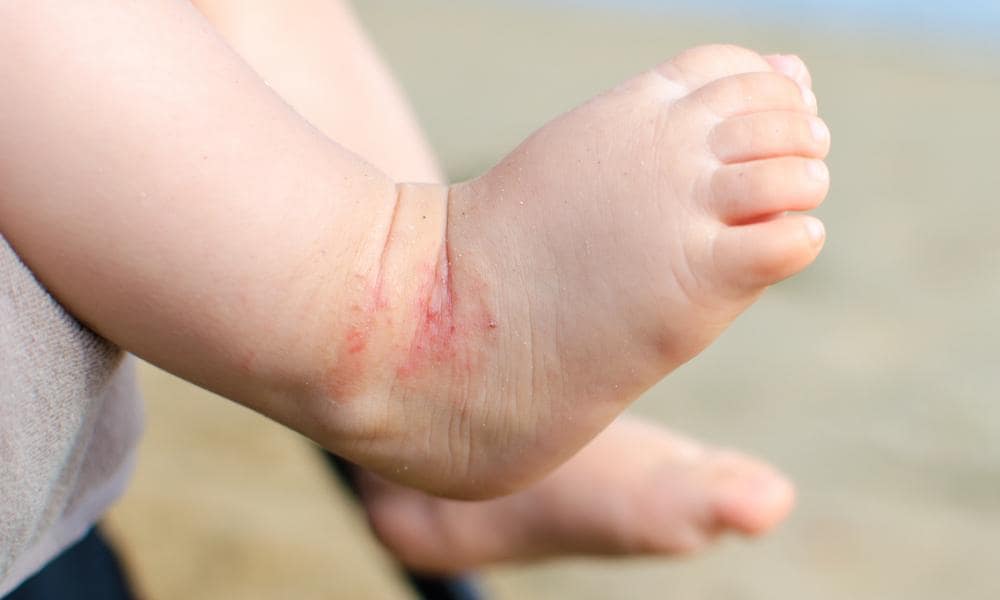Almost everyone will have to deal with itchy skin once in a while. From childhood into adulthood, your child’s skin will go through different experiences caused by weather, food, hormones, etc. But if you find that your kid has red, itchy rashes on their skin for long periods of time, it could be eczema.
Eczema can happen at any age, but it is most often found in babies and younger children. They rashes will flare up, disappear and then come back again without warning.
For parents, dealing with eczema and finding a solution can be very frustrating! But recent studies have shown that you can help reduce the effects of eczema with a healthy diet and a little Vitamin D!
According to research, Vitamin D can help the immune system by reducing levels of inflammation and strengthening the skin barriers. Maintaining healthy levels of Vitamin D may be a way to help manage eczema symptoms in children.
So let’s break down eczema and how Vitamin D can help!
What is eczema?
In short, Eczema, also known as atopic dermatitis, is a chronic skin disorder that causes inflammation and red, dry, rough, and itchy skin. As I mentioned previously, Eczema is most common in infants and young children, about one-third of the infants had eczema.
In most cases, you will see signs of eczema in children before the age of 5 years old. However, it is possible to develop the disorder as an adult and continue to have it as an adult. It is incredibly common in the United States and affects about 10-30% of people from all backgrounds.
Symptoms of eczema include:
- Red or grayish patches on the skin
- Severe itching
- Small bumps on the skin, which may leak fluid
- Cracked and scaly skin
- Sensitive or raw skin
Typically, eczema will cause your child’s skin to develop itchy patches on their hands, feet, elbows, behind the knees, face, neck, and ankles. But it is important to know that these patches can occur anywhere on the body - it can even affect the eyes, causing itchy, red, and swollen areas around them. About half of all children with eczema will also develop asthma.
The good news is atopic dermatitis isn't contagious. You cannot catch it from your child and they cannot give it to someone else. They can still interact with other kids and attend school with no issue!
What causes eczema?
The cause of eczema, unfortunately, is still a mystery. Scientists who have studied this condition are not sure what exactly causes it, but they think it’s a combination of genetics and the environment. Children with eczema have immune systems and skin barriers that do not function properly.
Does Vitamin D help with eczema?
At least a dozen studies have found that children (and adults) with eczema are more likely to have low levels of Vitamin D. Research has also found that people who have eczema and Vitamin D deficiency are more likely to get infections on their skin. Of all the health conditions helped by vitamin D, few respond as well as eczema.
Vitamin D also increases amounts of good antimicrobial proteins in the skin, which help destroy invading germs and viruses. This combination of lowering inflammation and increasing antimicrobial defenses can help your child’s immune system fight infections better.
So if your child is suffering from eczema, it is important you have their Vitamin D levels checked by your pediatrician. They will be able to recommend a Vitamin D supplement or specific foods that will benefit your child and help to relieve their symptoms!
Written by Nicky Dawkins
Save this article for later by pinning the image below:

References:


